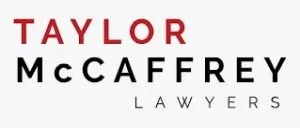- with Senior Company Executives, HR and Finance and Tax Executives
- with readers working within the Accounting & Consultancy, Banking & Credit and Business & Consumer Services industries
The Manitoba Human Rights Commission (the "MHRC") enforces and administers Manitoba's Human Rights Code (the "Code"). It has recently issued both a guideline and fact sheet providing information on how it interprets the Code and foresees its application in the context of COVID-19.
There are of course no cases yet and it is impossible to know if adjudicators under the Code will share this same interpretation suggested by the MHRC. Further, cases are not decided in a vacuum but rather on the particular and nuanced facts at hand. For that reason, what in a general sense might be seen as a valid statement of the law can become very difficult to apply in a specific situation.
Still, even though to large extent speculative, it is important for everyone (and employers in particular) to consider their possible obligations and options under the Code when addressing situations involving COVID-19. For that reason it is useful to consider what the MHRC has said.
Please note the obvious; everything related to the COVID-19 pandemic is in a constant state of rapid change. The information in this article is current as of April 15, 2020, however things can change and so you should seek specific and current information advice at the relevant time.
The Code Generally
The Code prevents unreasonable discrimination in certain contexts based upon certain protected characteristics. This includes the requirements that:
- No person shall discriminate with respect to any service, accommodation, facility, good, right, licence, benefit, program or privilege available or accessible to the public or to a section of the public; and
- No person shall discriminate with respect to any aspect of an employment or occupation.
The term "any aspect of an employment or occupation" is broadly defined and includes
- the opportunity to participate, or continue to participate, in the employment or occupation;
- the customs, practices and conditions of the employment or occupation;
- training, advancement or promotion;
- seniority;
- any form of remuneration or other compensation received directly or indirectly in respect of the employment or occupation, including salary, commissions, vacation pay, termination wages, bonuses, reasonable value for board, rent, housing and lodging, payments in kind, and employer contributions to pension funds or plans, long-term disability plans and health insurance plans; and
- any other benefit, term or condition of the employment or occupation.
Discrimination means:
- differential treatment of an individual on the basis of the individual's actual or presumed membership in or association with some class or group of persons, rather than on the basis of personal merit; or
- differential treatment of an individual or group on the basis of any of the protected characteristics; or
- differential treatment of an individual or group on the basis of the individual's or group's actual or presumed association with another individual or group whose identity or membership is determined by any of the protected characteristics; or
- failure to make reasonable accommodation for the special needs of any individual or group, if those special needs are based upon any characteristic.
Discrimination proven to be based upon bona fide and reasonable requirements or qualifications is permitted, provided that it can also be proven that reasonable accommodation to the point of undue hardship was not possible.
Where an officer, employee, director or agent of a person contravenes the Code while acting in the course of employment or the scope of actual or apparent authority, the person is also responsible for the contravention unless the person
- did not consent to the contravention and took all reasonable steps to prevent it; and
- subsequently took all reasonable steps to mitigate or avoid the effect of the contravention.
The protected characteristics include what one might expect, things such as nationality, religion, age, sex, gender identity, family status and sexual orientation but also importantly here, physical or mental disability or related characteristics or circumstances.
The MHRC and COVID-19
The MHRC has stated that COVID-19 qualifies as a ground of disability under the Code, falling into the category of a medical condition (or perceived medical condition) and so protected as a physical disability.
This is interesting because historically, commonplace and transitory conditions that last for a relatively short period of time, have no ongoing or long-term effects, and have minimal or no impact on an individual's opportunities to participate in employment or other activities on an equal level with others, would not be seen as warranting protection under human rights legislation.
At present much is unknown about COVID-19 but it does appear that how it impacts any particular individual can vary tremendously, ranging from no symptoms at all in some with others tragically perishing.
As a result, in theory having COVID-19 might well be relatively transitory for some and therefore based upon existing case law, would not properly be seen as a physical disability. For others, obviously it would be.
How adjudicators will make sense of this very much remains to be seen. Assuming it is properly seen as a physical disability warranting protection, if the alleged discrimination relates to action taken to ensure the person is not contagious and exposing others to potential harm, probably all can be treated the same and based upon the best available medical information at the time. Of course, this may change as we learn more about the virus. If the alleged discrimination relates to accommodation required for that specific person based on their needs arising from being infected by COVID-19, that would require a case-by-case approach as everyone's needs will be different, as will the ability to reasonably accommodate such needs to the point of undue hardship.
Can an Employer Send Employees Suspected of Having COVID-19 Home From Work?
An employer always has an obligation to take all reasonable steps to keep the workplace safe to the extent reasonably possible. However, an employer should refrain from sending an individual employee home or asking them not to work due to COVID-19 concerns unless these concerns are reasonably held and consistent with information currently available from public health officials.
Are Employees Able to Refuse to Work Due to COVID-19?
Employees have rights under The Workplace Safety and Health Act to refuse work that they believe is unsafe. That statute provides for a process of investigation, verification and correction of any safety issues, and non-reprisal against the employee for exercising these rights. All that said, if an employee refuses to perform work which is safe, legal advice should immediately be sought to address things lawfully based on the specific facts at hand.
How Does an Employer Balance Safety Concerns With Its Obligations under the Code?
The Code protected right to be free of discrimination is not absolute. If an employer can establish that accommodation would amount to undue hardship such as for example excessive safety risks to the employee others, then discrimination can be lawful. We see this frequently in the case of safety sensitive workplaces and prohibitions on the use of intoxicants. Following best practices as directed or mandated by public health officials is an important part of this assessment.
Can an Employee be Disciplined or Terminated Due to Quarantine or Self-Isolation Due to COVID-19?
From a human rights perspective, the employer would have to justify this as a reasonable and bona fide action, and it is difficult to imagine a short-term situation where this could be justified. Rather, accommodation to the point of undue hardship would presumably be available by allowing the employee to be off of work without pay on a temporary and non-disciplinary basis.
An employee who is required to stay home to care for family members likely must also be accommodated to the point of undue hardship. This could include where another family member is ill or in self-isolation, or to care for children.
Beyond this, in Manitoba it appears The Employment Standards Code will soon be amended to mandate COVID-19 related, unpaid leaves of absence from work, and so disciplining or terminating someone needing such leave would be illegal. Details of the proposed amendments to legislation are not available as of the time of writing.
Employers may want to review their absenteeism policies to ensure they do not even unintentionally discriminate against employees who are required to be absent in these circumstances. Unintentional discrimination (sometimes called systemic discrimination) is illegal.
Can Employees Required to be in Self-Isolation/Quarantine Work?
Employers can choose to provide flexible solutions such as remote work as an accommodation to have an employee continue to work (and be paid) when they cannot physically be at the workplace. An employee could even argue in some cases that it would be discrimination not to permit them to work remotely in such a circumstance. Other potential accommodations short of working from home include allowing temporary leaves of absence, or alternate duties.
Can an Employer Lay Off Employees Due to COVID-19?
An employer might suffer a loss of business and be in a situation where as a result it needs to reduce numbers of employees, and so most likely lay off employees it deems redundant. It cannot however select the employees to be laid off based on a protected characteristic and should not lay off someone because they have COVID-19.
Is an Employee Not Able to Work due to COVID-19 Entitled to Paid Time Off Work?
In Manitoba, there is no mandatory paid sick leave and so if a particular employer does not offer that to employees, employees not able to work due to COVID-19 are not entitled to be paid for that time off work.
If the employer does have a paid sick leave system in place, then the employee with COVID-19 who cannot work should be treated the same as any other employee who could not work for a medical reason. Further, if the employer typically allows flexibility so that an employee who has a family member needing care is able to be absent and access paid sick leave, then the employer should do the same thing with the employee needing to be absent to care for a family member due to COVID-19.
Many times employers have disability coverage through insurers and in such cases the employer should contact the insurer to get specific direction on the benefits that are available. Care should be taken as well so that informal of off the cuff interpretations of benefits do not systemically discriminate.
Can an Employer Require a Medical Note?
Unnecessarily visiting medical offices to obtain a medical note risks exposure to COVID-19 for everyone and places additional burden on the health care system. The MHRC has advised employers to be cautious and flexible when making requests for medical notes related to COVID-19. Public health officials are currently counselling against seeking medical notes.
Additional information on the MHRC and the Code can be found at:
http://www.manitobahumanrights.ca/v1/
Originally published April 15, 2020.
The content of this article is intended to provide a general guide to the subject matter. Specialist advice should be sought about your specific circumstances.



